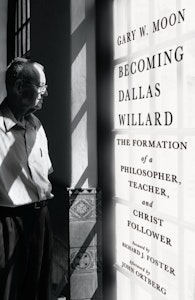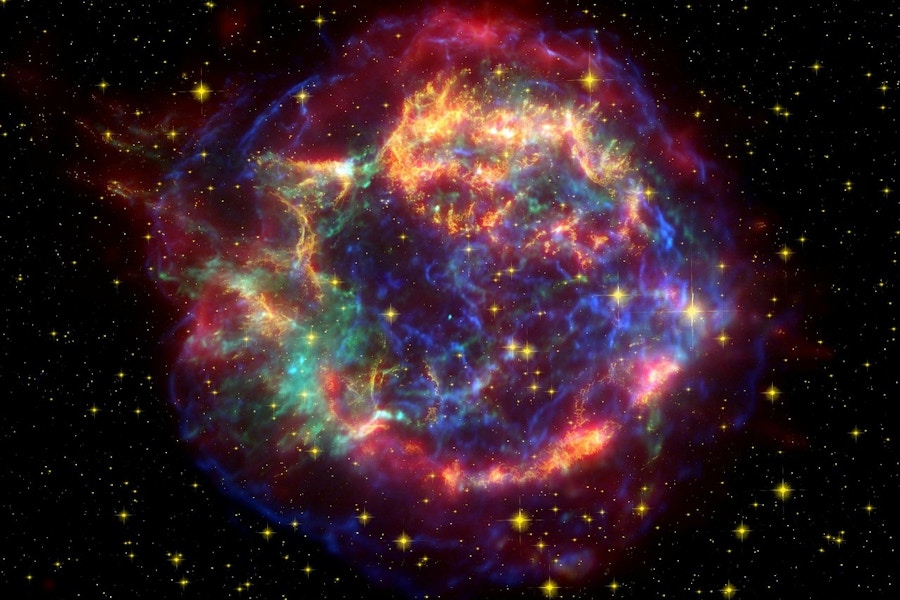 Excerpt from Becoming Dallas Willard
Excerpt from Becoming Dallas Willard
If we are fortunate, once in our lifetime a human supernova presence streaks across our mental and emotional horizon, and the intensity of this light changes us forever. Dallas Willard was such a supernova for me.
The gnawing question is, exactly how did a person with the rare combination of exceptional brilliance and unadulterated goodness come to be? Brilliance is often marred by arrogance. Goodness is often combined with an absence of rigorous intellectual effort. So, how did this unique blending of brilliance and goodness happen?
This is precisely the complicated, even tangled, issue Gary Moon seeks to unravel in Becoming Dallas Willard. And he does so with unusual success.
Weaving a story that stretches all the way back to the heart-rending losses Dallas experienced in the Missouri Ozarks, and all the way forward to him becoming an international authority on Edmund Husserl and his philosophical system known today as phenomenology. Both sides of the story are crucial to understanding how Dallas Willard became such an extraordinary person.
The pain-filled losses of childhood are almost too much to bear. His mother dying suddenly . . . his father making a tragic moral choice . . . well, perhaps I had best leave these stories for you to discover from the book itself.
There are also amazing graces. As a child of nine, Dallas becomes convinced that "Jesus Christ [is] the greatest person that ever lived, and I wanted to be on his side." As a teenager, he reads every book in the high school library. ("Oh, it was a small library," he once told me.) This leads him to adventure stories like The Count of Monte Cristo
Now, to speak of Plato's Republic leads us to consider the brilliant side of this man. Over the years I have been around a fair number of genuinely bright people, but Dallas, I think, is the only person I have known that I would place in the genius category. I once asked him if he had a photographic memory. He demurred. Well, if his mind was not photographic, it certainty was close.
Scott Soames, the department chair of USC's School of Philosophy says that Dallas was "the teacher with the greatest range in the school of philosophy, regularly teaching courses in logic, metaphysics, ethics, aesthetics, history of philosophy of religion, and the history of philosophy from the seventeenth through the twentieth centuries, including both sides of the split between analytic philosophy and phenomenology."
It is in discussing the brilliance of Dallas that Gary Moon's skills shine brightly. Somehow, don't ask me how, he is able to take concepts like "metaphysical realism" and "epistemic realism" and make them understandable for ordinary people like you and me. Even more, he skillfully shows us how these concepts are absolutely critical for Dallas's teaching on, for example, the invisible realities of the Trinity and the kingdom of God.
Dallas, of course, is best known for his writing and teaching in Christian spirituality. I would consider The Divine Conspiracy
Of course, Dallas's brilliance, as important as it is, is far from the whole story. He possessed in his person a spiritual formation into Christlikeness that was simply astonishing. Please understand, Dallas and I had a working friendship for more than forty years, so, believe me, I knew the warts and the wrinkles. Still, I saw rich character-forming realities deepen and thicken in him over many years.
I am struggling for the words to share with you what I mean. To put it negatively, Dallas was amazingly free from manipulation and control. To say it positively, he showed graciousness and kindness to everyone who came in contact with him.
Every society, every culture, every age needs models of a life well lived. The deepest, most fundamental reason for studying the life of another person is so we can learn to live our lives more fully, more truly, more authentically. This is why Becoming Dallas Willard is a genuinely important book.
Taken from the foreword by Richard J. Foster in Gary Moon’s Becoming Dallas Willard: The Formation of a Philosopher, Teacher, and Christ Follower (InterVarsity Press, 2018). You may purchase it from the Publisher by clicking HERE.
Text First Published March 2018


